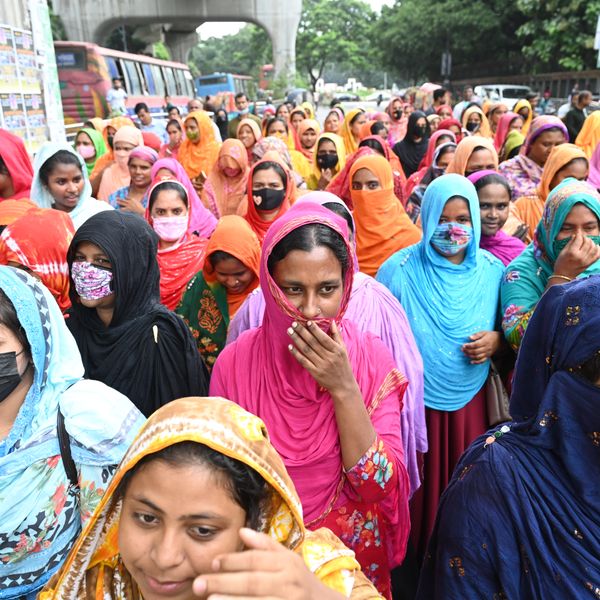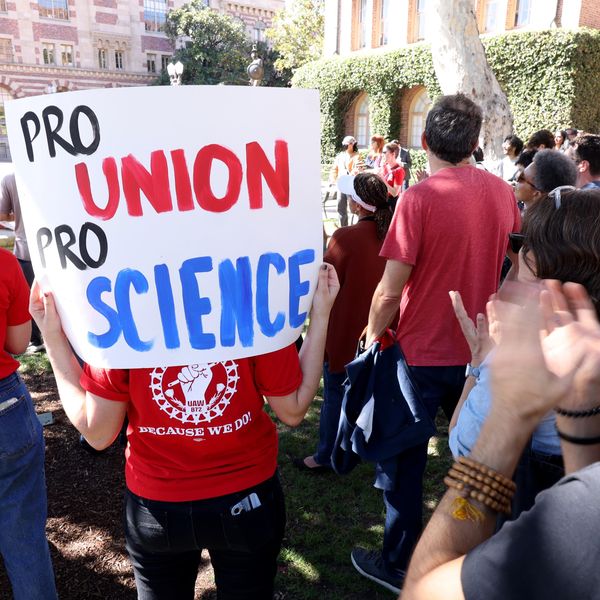It is a long distance from student consumers at U.S. college and university campus stores to the wretched overseas factories indenturing sweatshop workers who produce products for the U.S. market. But the United Students Against Sweatshops has built a network of students nationwide to bridge that distance with organized consumer power and citizen pressure.
The companies whose brand names are on the items in the campus and other stores do not generally put their brand names on the grim factories with serflike labor in Central America, Mexico, southeast Asia, China and elsewhere. These and other authoritarian regimes allow health and safety conditions that jeopardize workers daily.
Several dozen college and university administrations, both shaken by or admiring of the students ethics-in-action have joined a Workers Rights Consortium through which visitations are conducted to these factories in various nations. Students return with far more than facts and eyewitness accounts. They return with the drive to change the status quo. Some students even arrange for workers to visit the United States to provide firsthand testimony about their oppressive overseas factories.
Some of these manufacturing facilities use child labor to make products for international commerce -- a situation that is legal under World Trade Organization rules. You cannot buy anything made by child labor in this country, because such labor is illegal in the United States; but ironically our government cannot ban such imports without violating the WTO trade agreement and subjecting the United States to monetary fines or other trade penalties.
This is just one reason why a growing coalition of labor, church, human-rights, environmental, consumer and student groups oppose corporate globalization.
USAS has been doing more than arousing the campuses, holding training conferences and enlisting faculty to their cause. They are pressing U.S. companies to insist that their contracting companies in foreign countries upgrade their miserable working conditions and demonstrate proof of that result. For example, USAS reports a recent victory following its coordinated effort with organizing efforts of workers at the large Kukdong factory in Puebla, Mexico, which makes collegiate apparel for Nike and Reebok. The laborers now have their own independent trade union.
In the United States, USAS is active as well.
Students are mobilizing behind factory workers at the New Era cap factory in Derby, N.Y., a facility that makes baseball caps for more than 400 universities and is the exclusive supplier for Major League Baseball. Workers have been on strike to oppose a 30 percent pay cut, an increase in workload and unsafe working conditions.
Consumer leaders for decades have dreamed of organized consumer power -- whether by boycotts or promises of one through more-intricate networks and corporate campaigns -- to reshape company misbehavior along more-decent pathways. These students are pioneering new territory in turning such dreams into reality.
There are many workers, sweating under terrible bosses, devoid of any rights or legal protections, unable to feed their families and exposed to the arbitrary actions of tyrants and their business partners in these Third World countries. It is their plight and needs that keep these students expanding their mission of justice.
USAS has its offices in Washington, where Rachel Edelman, Amber Gallup and Bhumika Muchhala run a beehive of activity. Readers who want more information or wish to support this committed organization with tax-deductible contributions should contact USAS at Suite 303, 888 16th Street NW, Washington, D.C. 20006 (www.usasnet.org).


